On November 3-5, 2018, the Next Civilized Cities and Sustainable Development Forum was held in Beijing. The forum was co-hosted by the Institute for Sustainable Global Development of Tsinghua University (Tsinghua SDG Institute) and Yeosijae. Ban Ki-moon, former Secretary-General of the United Nations, Chairman of Boao Forum for Asia, and Chairman of Ban Ki-moon Center for World Citizenship. Lee Hyun-jae, Chairman of the Board of Directors of the Yeosijae; Kim Won-Soo, former Under-Secretary-General of the United Nations and Chairman of the Board of Directors of the Ban Ki-moon Center for World Citizenship; Jean Todt, President of the Fédération Internationale de l'Automobile (FIA); Hong Seok-hyun, former Ambassador of the Embassy of the Republic of Korea in the U.S., and former President of Joongang Ilbo; Kim Yong Hak, President of Yonsei University; Kim Doh-yeon, President of Pohang University of Science and Technology; Irina Bokova, Former Director General of UNESCO; Lee Kwang-jae, 35th Governor of Gangwon Province and President of the Yeosijae, Counselor of the State Council; Qiu Baoxing, Chairman of the China Society for Urban Studies, former Vice-Minister of the Ministry of Housing and Urban-Rural Development, and Xu Lin, Chairman of the China-U.S. Green Fund, former Director General of the Development Planning Department of the National Development and Reform Commission (NDRC) and former Director of the Center for Reform and Development of Cities and Small Towns; Zhang Dehua, Deputy Secretary of the Yuxi Municipal Party Committee and Mayor of Yuxi; Qiu Yong, President of Tsinghua University; Wu Hongbo, former Under-Secretary-General of the United Nations and Co-Director of the TUSDG; Yang Bin, Vice President and Provost of Tsinghua University and Chairman of the Board of Directors of the TUSDG; Xue Lan, Professor & Dean of School of Public Policy and Management, Tsinghua University (SPPM), Co-Director of TUSDG; Yu Shijie, Deputy Director of Online Education Research Institute Center of the Ministry of Education, Director of Online Education Office of Tsinghua University; Zhu Xufeng, Professor and Vice Dean of SPPM, Executive Director of TUSDG, and representatives of a number of South Korean government officials, officials of international organizations, professors of domestic and international universities, and more than 300 visitors from across China. This forum.
On the morning of the 4th, at the “Next Civilized Cities and Sustainable Development Forum”, Lee Hyun-jae, Chairman of the Board of Directors of the Yeosijae, gave an opening speech, Qiu Yong, President of Tsinghua University, gave a welcome speech, and Kim Yong Hak, President of Yonsei University, gave a congratulatory speech.
Opening Ceremony
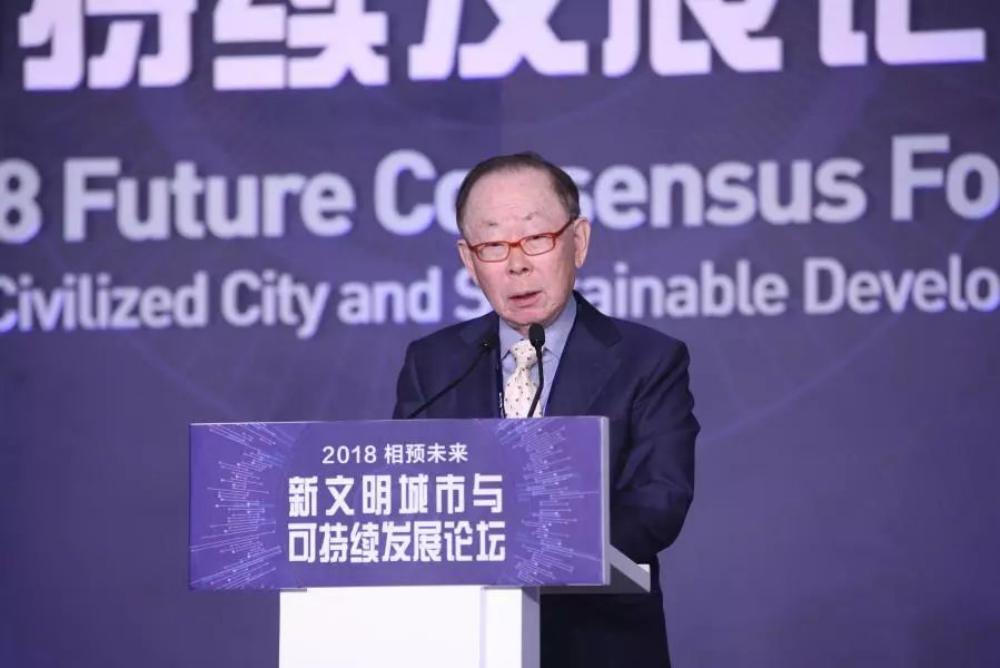
Lee Hyun-jae
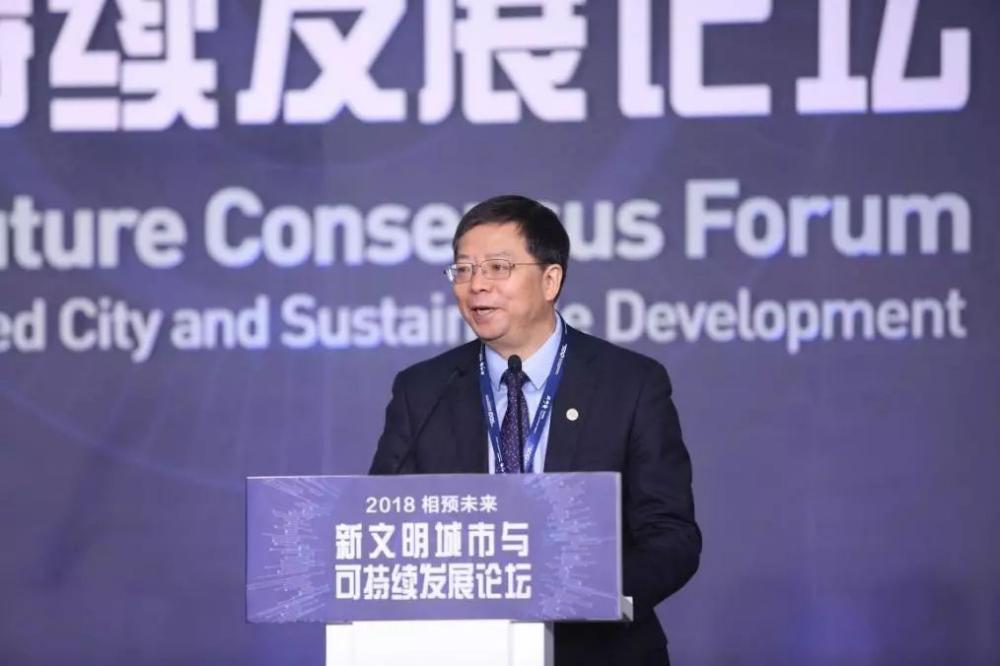
Qiu Yong
President Qiu Yong pointed out that it is of great significance for this forum to focus on future cities and sustainable development. Modern big cities coexist with industrial civilization in synergy, and at the same time are the gathering place of mass production, mass consumption, and high-density development patterns, which is the core reason for exacerbating the crisis of unsustainability. Cities are centers of economic and social activity and have a crucial impact on people's production and lifestyle. In a sense, only when cities embark on the path of sustainable development will there be national and even global sustainable development. Tsinghua University actively participates in the implementation of the United Nations 2030 Agenda for Sustainable Development, and takes the initiative to carry out talent training, scientific research, and exchanges and promotions related to sustainable development, in the hope of contributing to the promotion of global sustainable development.
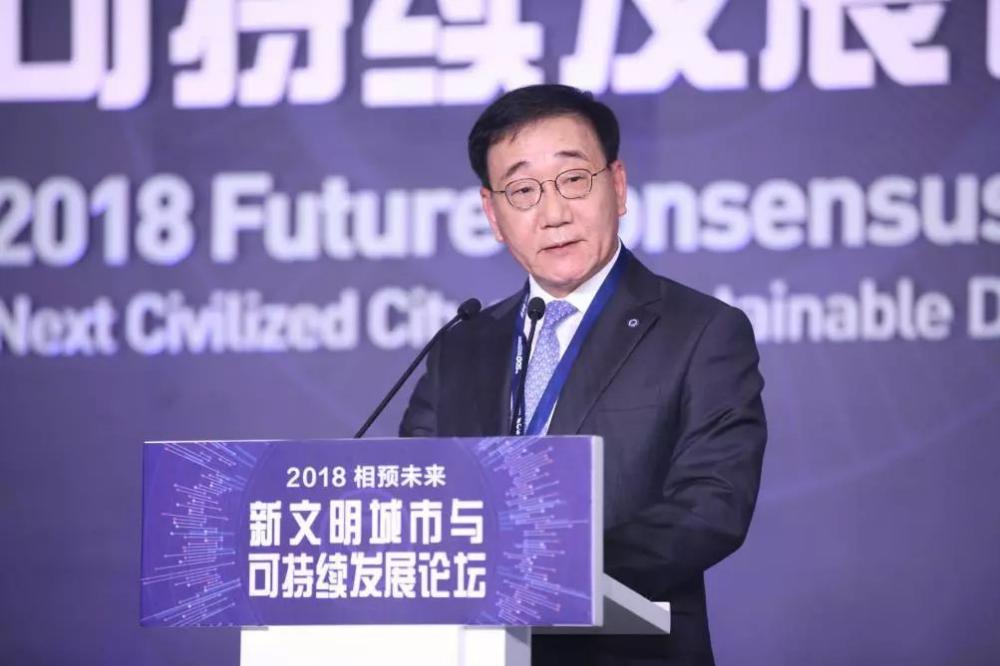
Kim Yong Hak
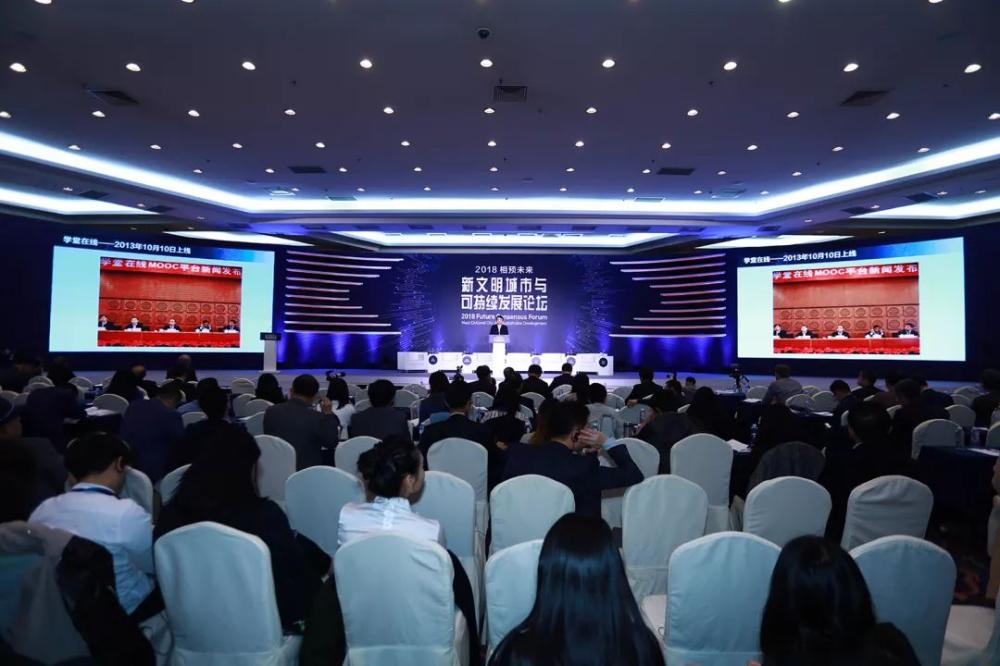
Site of the Next Civilized Cities and Sustainable Development Forum
Keynote Speech: Next Civilized Cities and Sustainable Development
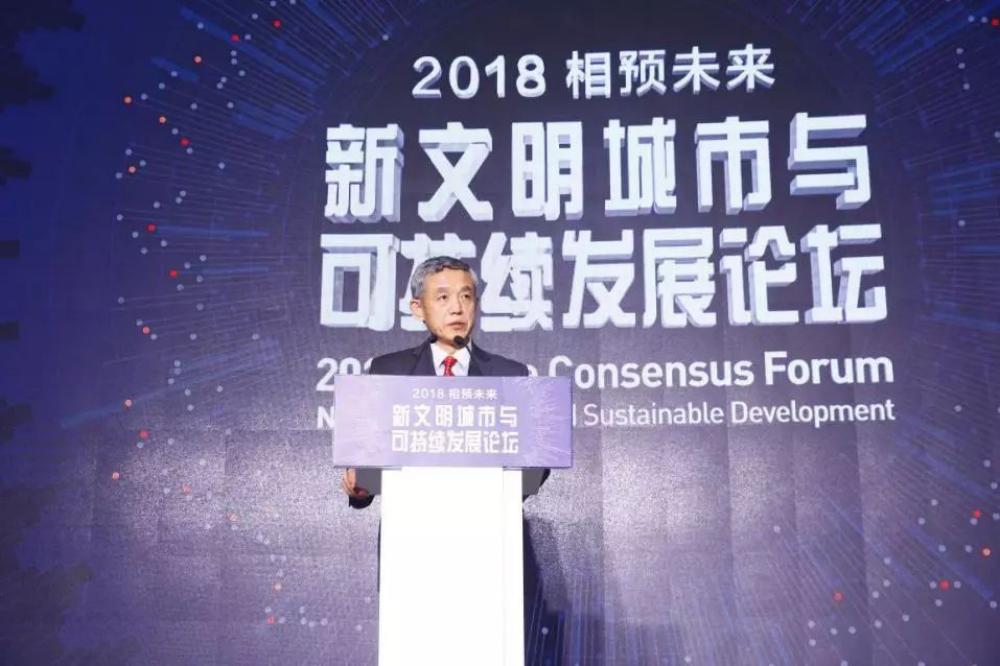
Xue Lan
Afterwards, Prof. Xue Lan, Dean of SPPM and Co-Director of TUSDG, presided over the keynote speech session of this forum. Ban Ki-moon, former Secretary-General of the United Nations, Chairman of Boao Forum for Asia and Chairman of Ban Ki-moon Center for World Citizenship, and Qiu Baoxing, Counselor of the State Council and former Vice-Minister of China's Ministry of Housing and Urban-Rural Development, delivered the keynote speeches respectively.
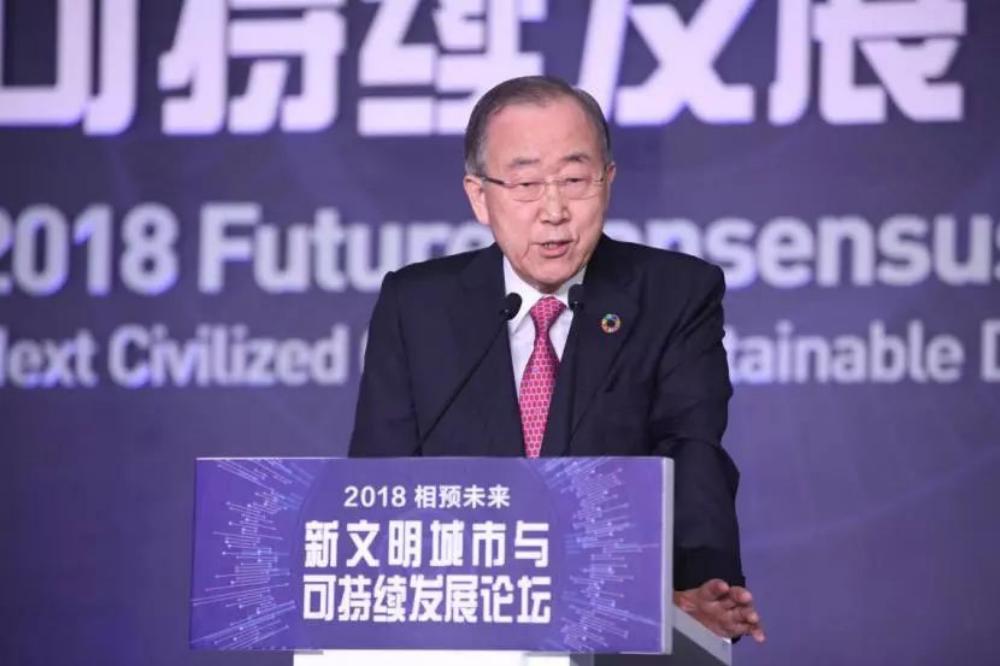
Ban Ki-moon
Ban Ki-moon stated that large cities derived from industrial civilization were at the core of today's unsustainable global development. In order to address the crisis of unsustainability, he proposed the concept of “creative new civilization cities” - with creativity at the core of new civilization cities, where human creativity is made possible through the attraction of talent and the convergence of knowledge in cities. At the same time, through the use of digital technology and the fusion of Eastern and Western values, we can work together with influential creative organizations to create a new civilized city. Finally, he expressed his hope that China will play a leading role in building new civilized cities.
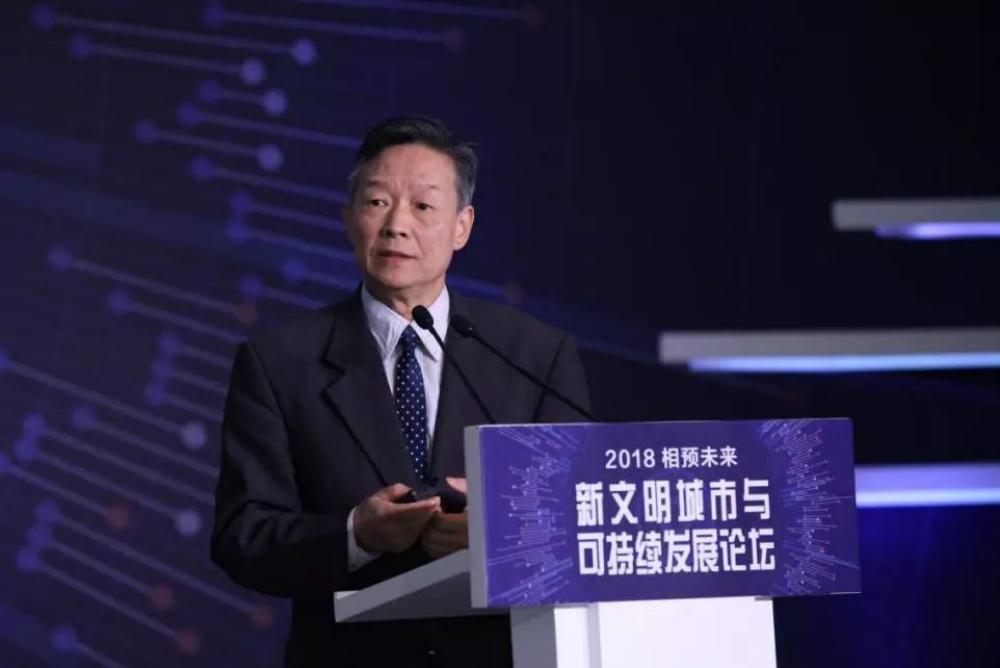
Qiu Baoxing
Qiu Baoxing shared China's urbanization experience. He said that the key to practicing healthy urbanization is to play the role of urban planning, and elaborated on China's urbanization development in terms of the five basic principles of “coordinated development of large, medium-sized and small cities and towns, complementary and coordinated development of cities and rural areas, compact spatial density of towns and cities, prevention of the formation of empty cities, and the protection of cultural and natural heritages”. The way of China's urbanization development is described. Finally, he compared urbanization to a locomotive, with urban and rural planning being the track, which should be built in a precise and reasonable manner and in the right direction in order for urbanization to develop in a healthy manner.
Plenary Session 1: Planned Creation Project - Next Civilized Cities
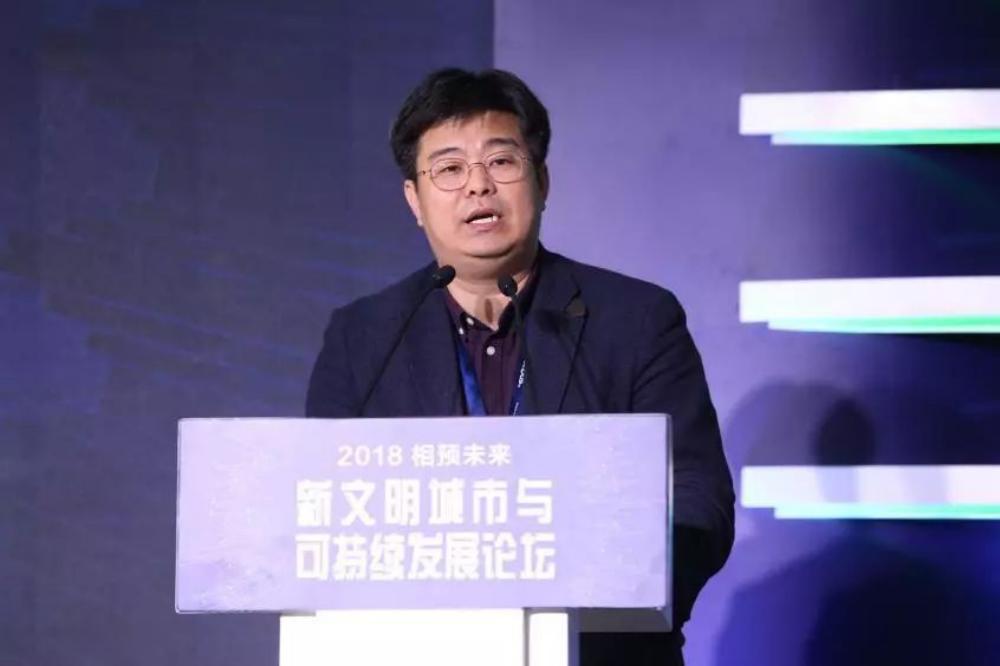
Jeong Jae-Seung
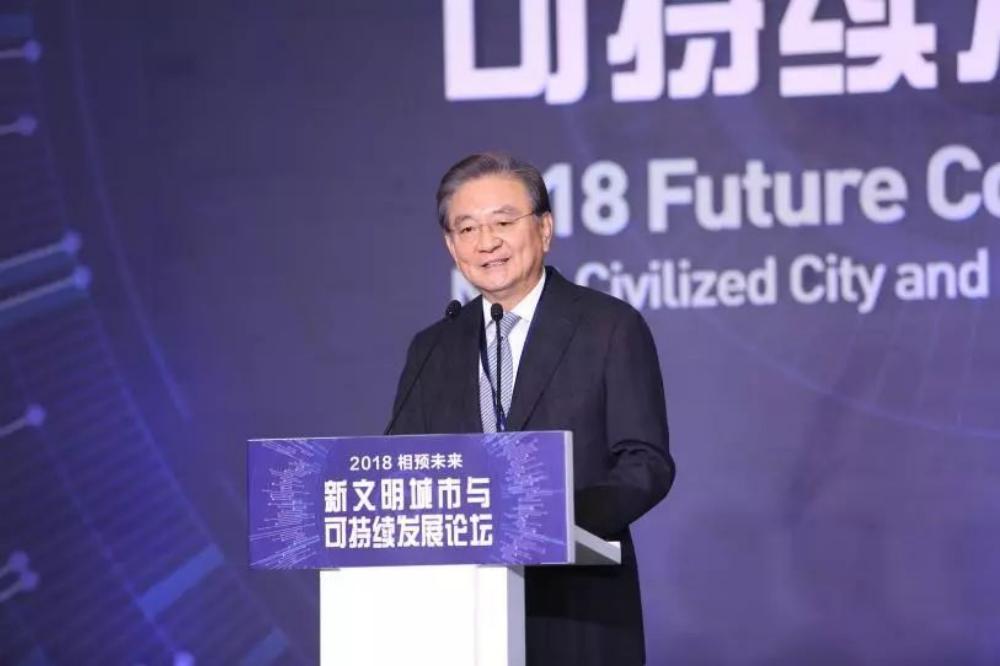
Hong Seok-hyun

Zhao Huji
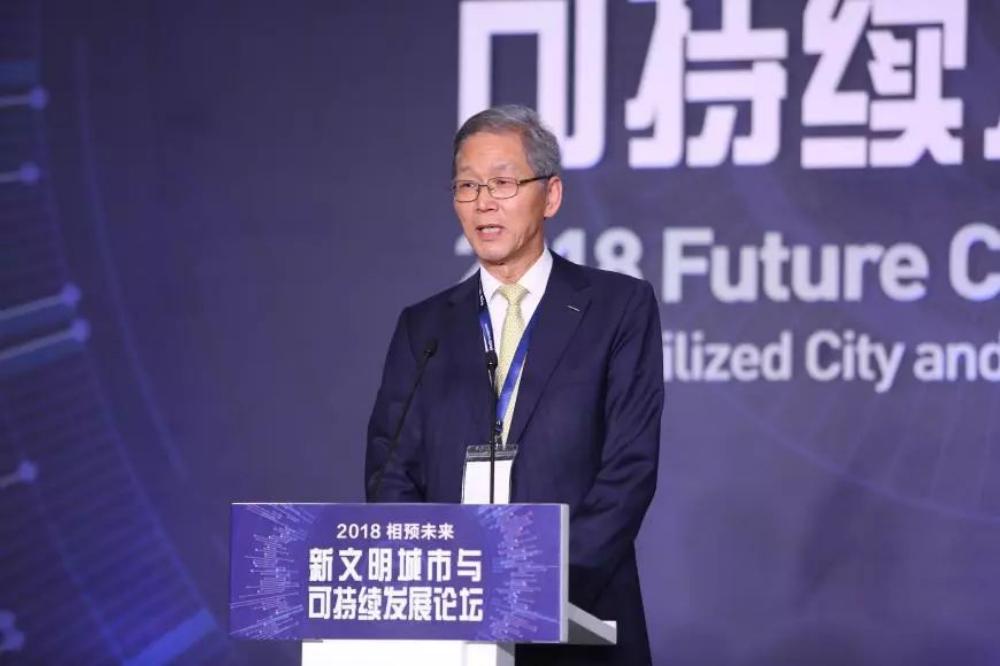
Kim Doh-yeon
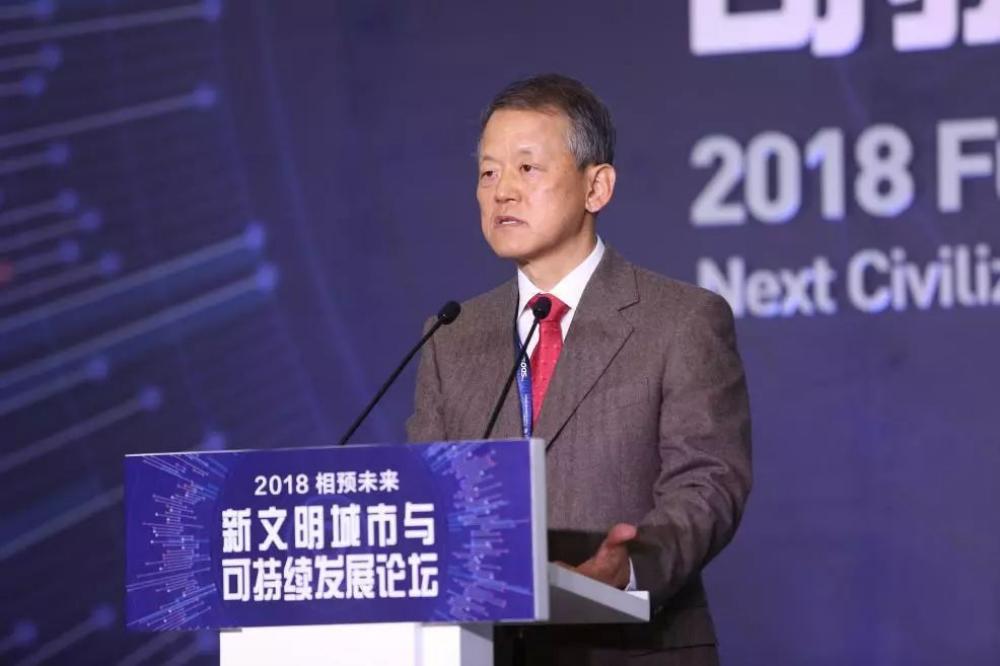
Kim Se-ho
The “Planned Creation Projects: New Civilized Cities” panel discussion focused on the two main topics of “How to create new civilized cities and who should take the lead”. The session was moderated by Jeong Jaeseung, Professor of Biology and Brain Engineering at the Korea Advanced Institute of Science and Technology (KAIST). Hong Seok-hyun, former Ambassador of the Republic of Korea Embassy in the U.S. and former President of Joongang Ilbo, Kim Se-ho, President of the International Project Management Association, Zhao Huji, former Professor of the Party School of the CPC Central Committee, Kim Doh-yeon, President of Pohang University of Science and Technology, and Xu Lin, Chairman of the China-U.S. Green Fund and former Director General of the Department of Development Planning of the National Development and Reform Commission (NDRC), former Director General of the Center for the Reform and Development of Small Towns and Cities of the NDRC, were present to give presentations.
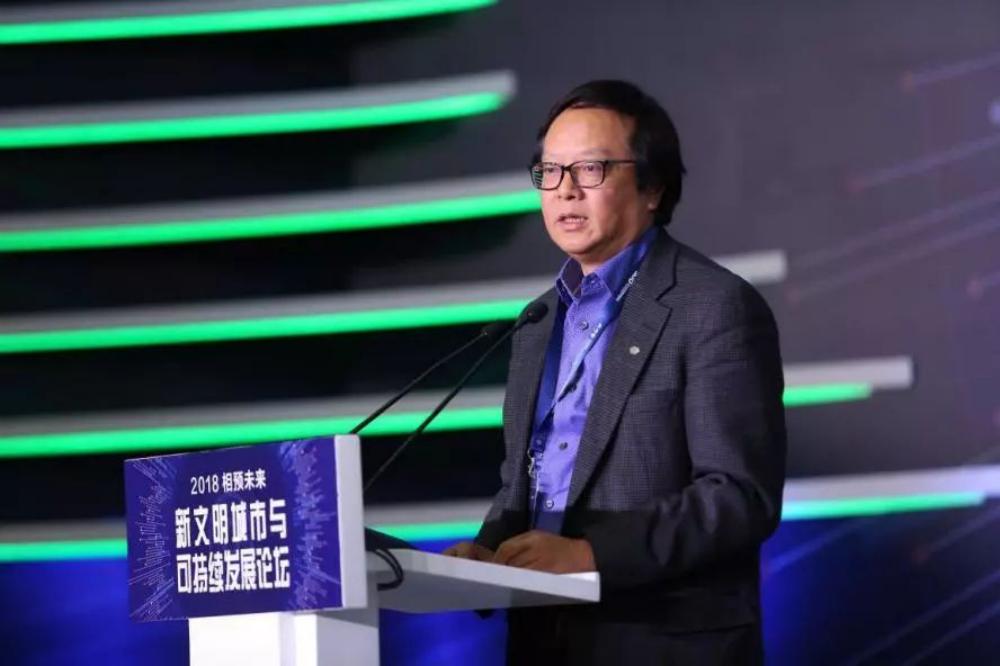
Xu Lin
Xu Lin, delivered a speech on the theme of “Open and Inclusive Urban Governance and Urban Innovation Capacity”. He talked about the importance of openness and inclusiveness in order for cities to be innovative, as well as the need to step up efforts to build and plan smart cities, and to help city leaders to better manage issues such as security and environmental protection. At the same time, he emphasized the importance of talent diversification and encouraged cities to improve quality services, R&D investment, and innovative ecological environments to create cities with ecological qualities that can attract more innovative talents and high-tech industries. Finally, he said that planning and building cities in accordance with the concept of ecological civilization would increase the possibility of building new civilized cities.
Plenary Session 2: the Digital Age and the New Civilized City
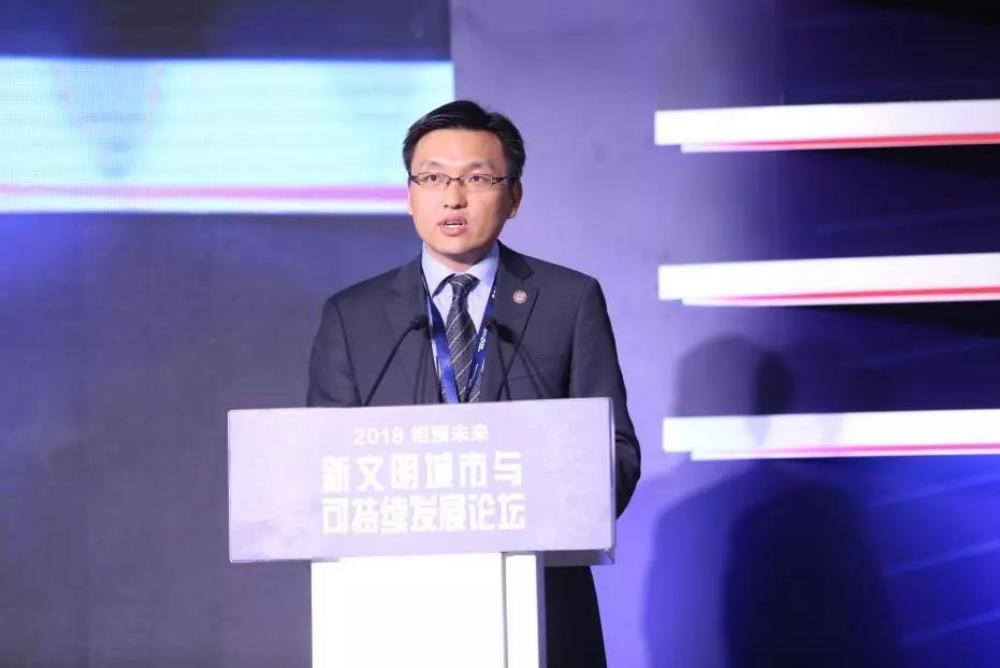
Zhu Xufeng
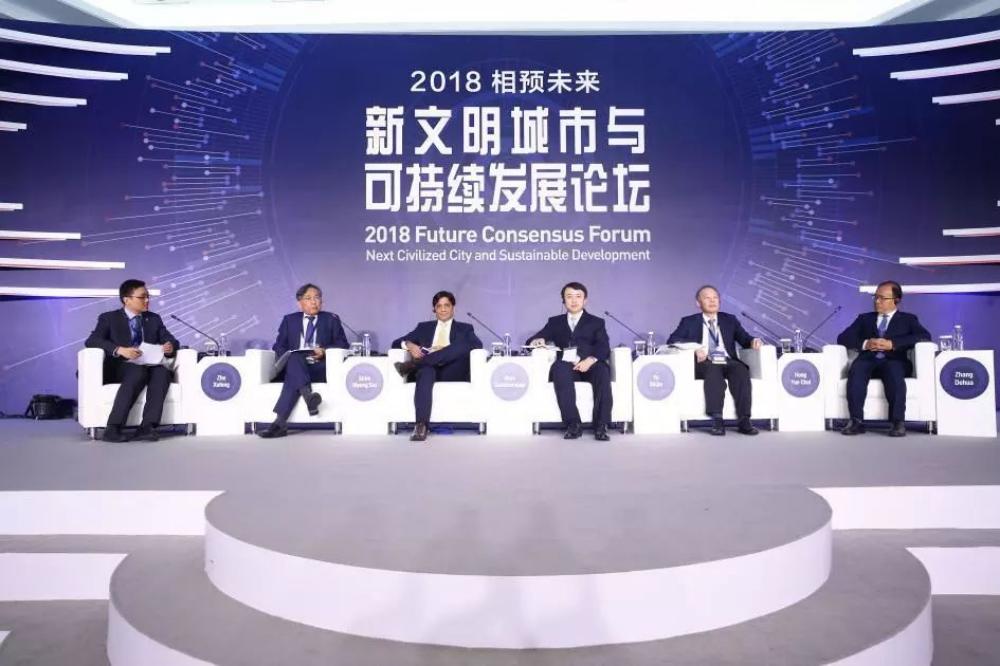
Group Photo
In the “Digital Age and New Civilized Cities” panel session, the opportunities and challenges of the digital age for employment, healthcare, education and industry were discussed. The session was moderated by Zhu Xufeng, Professor and Associate Dean of SPPM, Tsinghua University, and Executive Director of TUSDG. Arun Sundararajan, Professor at New York University, Yu Shijie, Deputy Director of the Center for Online Education Research Institute, Ministry of Education, Hong Yun-Chul, Professor at Seoul National University, Zhang Dehua, Secretary of the Party Leadership Group and Mayor of the Yuxi Municipal Government, and Sun Myung-shi, Professor of Health Policy at the Graduate School of Health Care, Yonsei University, made presentations and engaged in an exciting discussion.
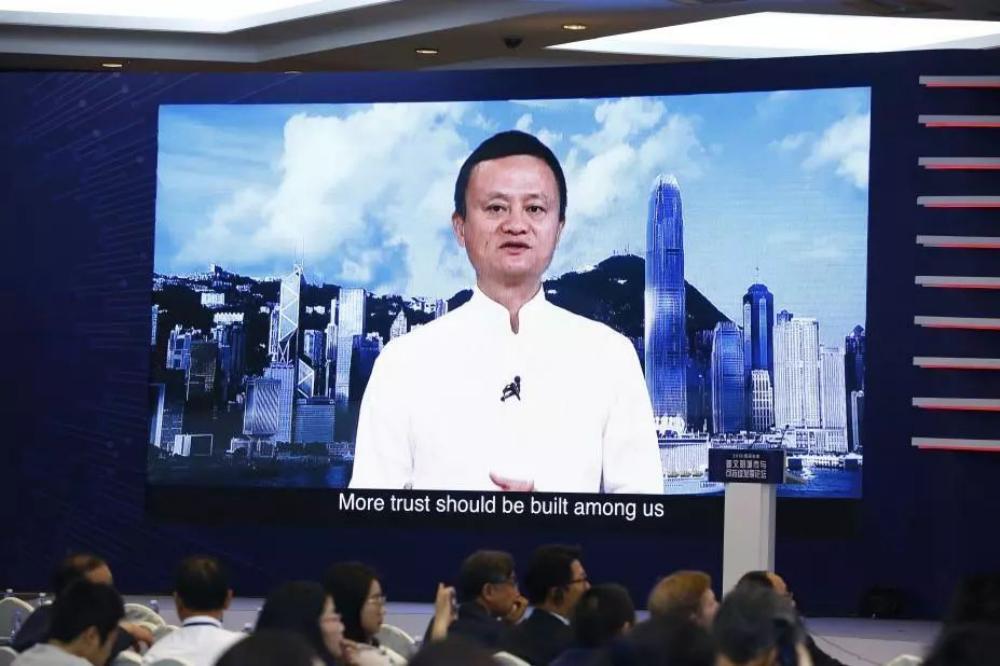
Jack Ma
In this session, Jack Ma, Chairman of the Board of Directors of Alibaba Group, also specially recorded a video speech. He emphasized that it is too complicated to manage a city, and with the help of big data methods, the city will be equipped with a “brain”, so that such a super brain can run a complex city and promote sustainable urban development with multiple goals.
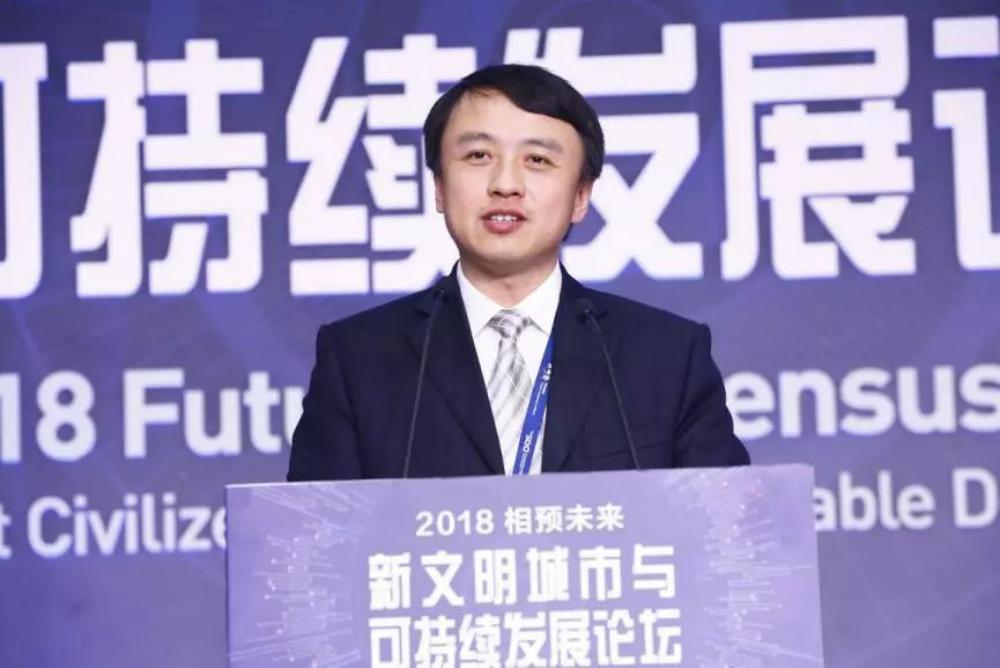
Yu Shijie
Yu Shijie introduced China's educational practices and exploration in the digital era, including the establishment of the Online Education Research Center of the Ministry of Education to disseminate the concepts and experiences of online education; the establishment of the online education research fund to encourage colleges and universities around the world to carry out research on educational reforms; and the establishment of Xuetang X, which radiates Tsinghua's and even the world's high-quality educational resources through the Internet by means of blended teaching, so that more students can benefit from the resources, and so on.
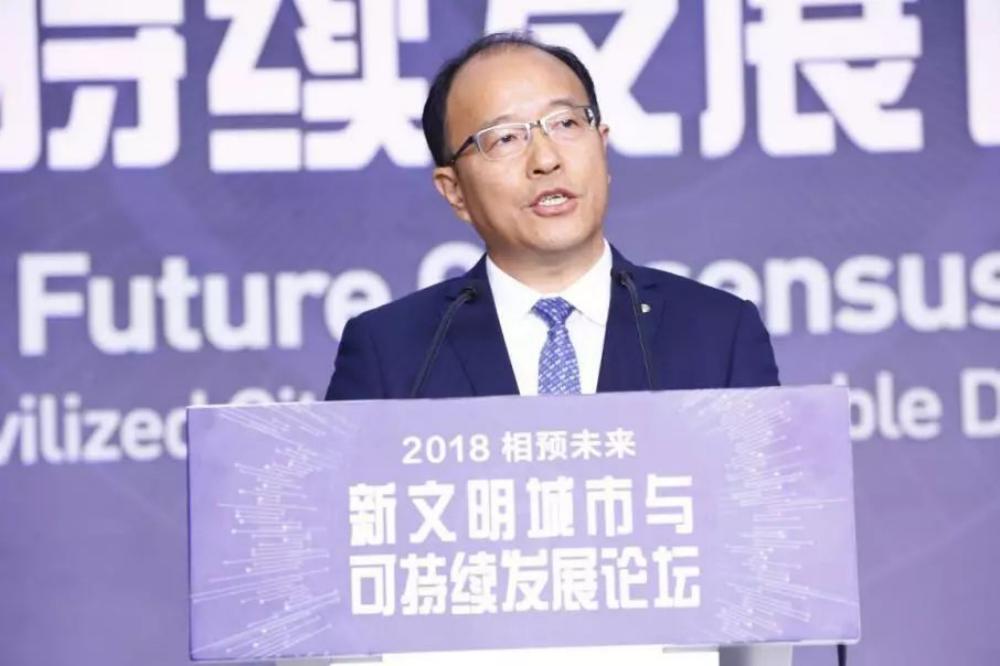
Zhang Dehua
Zhang Dehua shared the impact and experience of the digital era on Yuxi's urban construction: Yuxi has pioneered the development concept and practice of “planning-led city building, innovation-driven city development, ecological protection and nurturing of the city, and intelligent and smart city governance” in the exploration and practice of sustainable urban development and the advancement of industrialization and informatization.
Special Dialogue
Sustainable cities and development - policy synergies
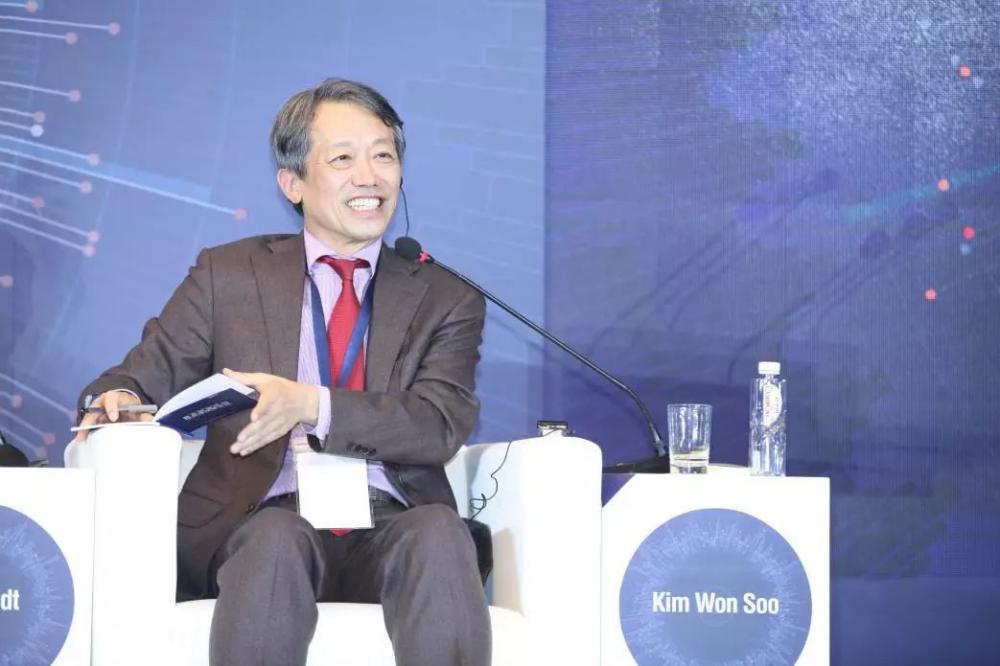
Kim Won-soo
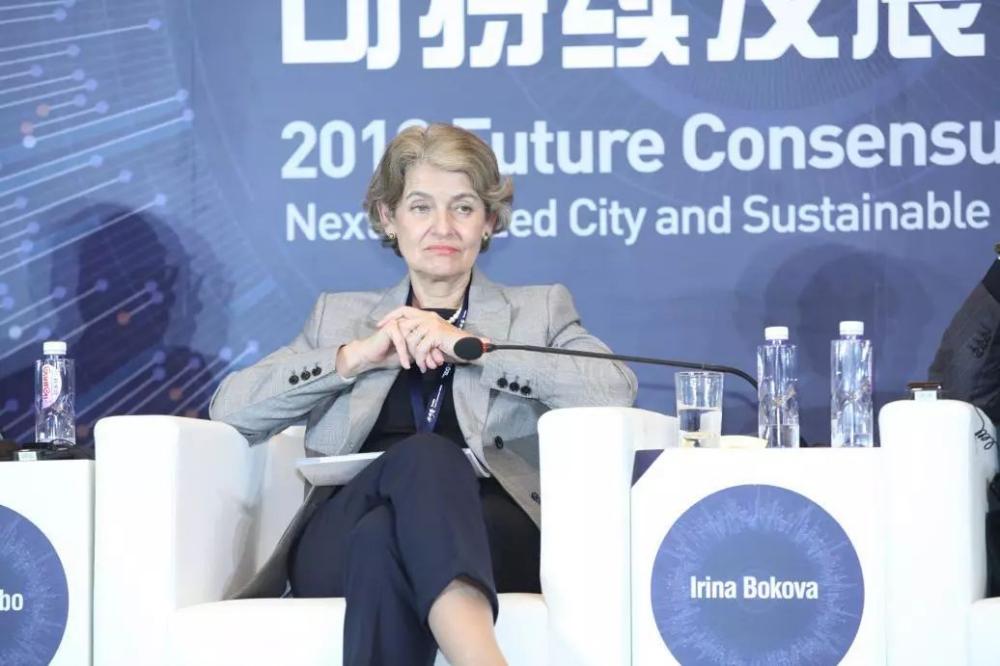
Irina Bokova
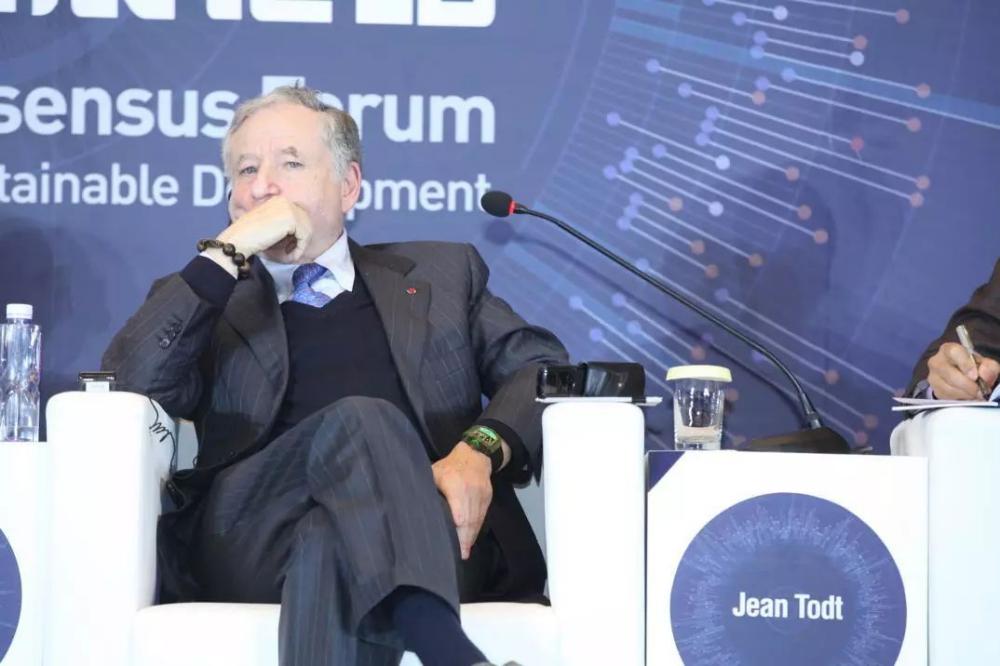
Jean Todt
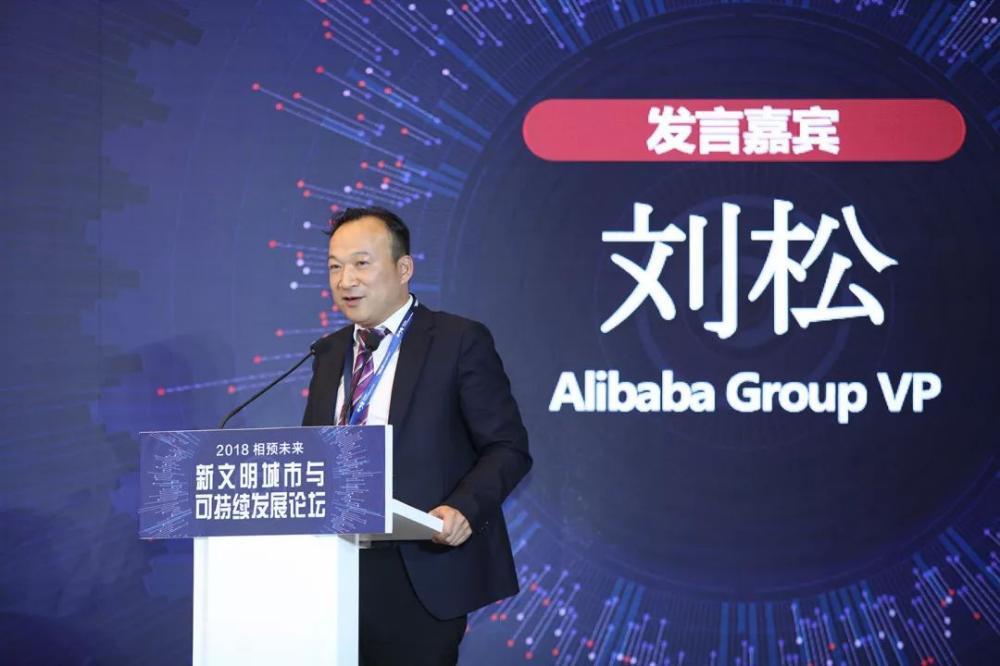
Liu Song
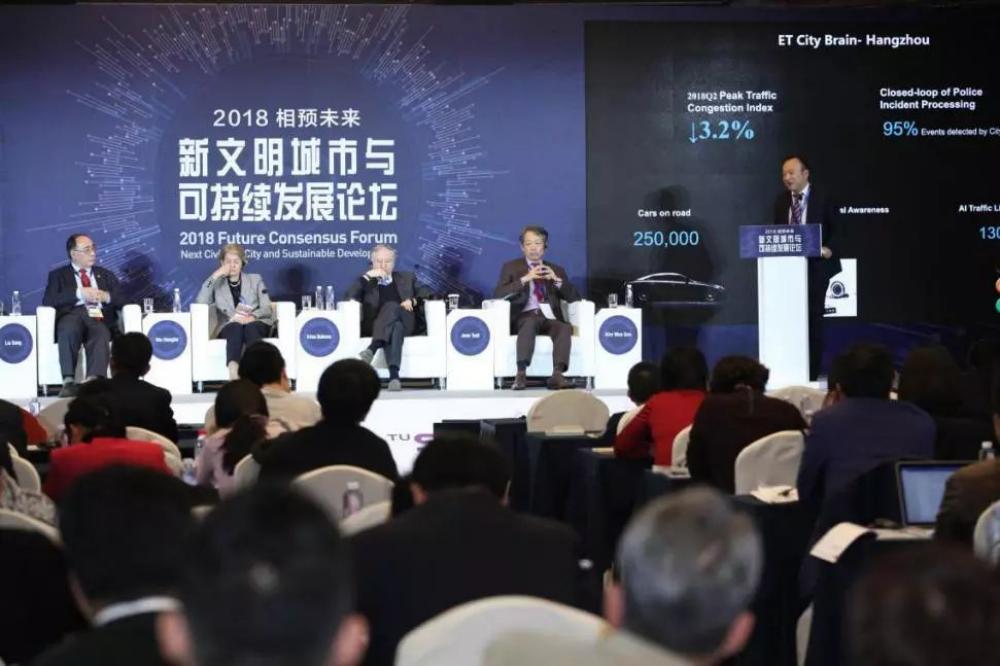
Group photo of “Special Dialogue” guests
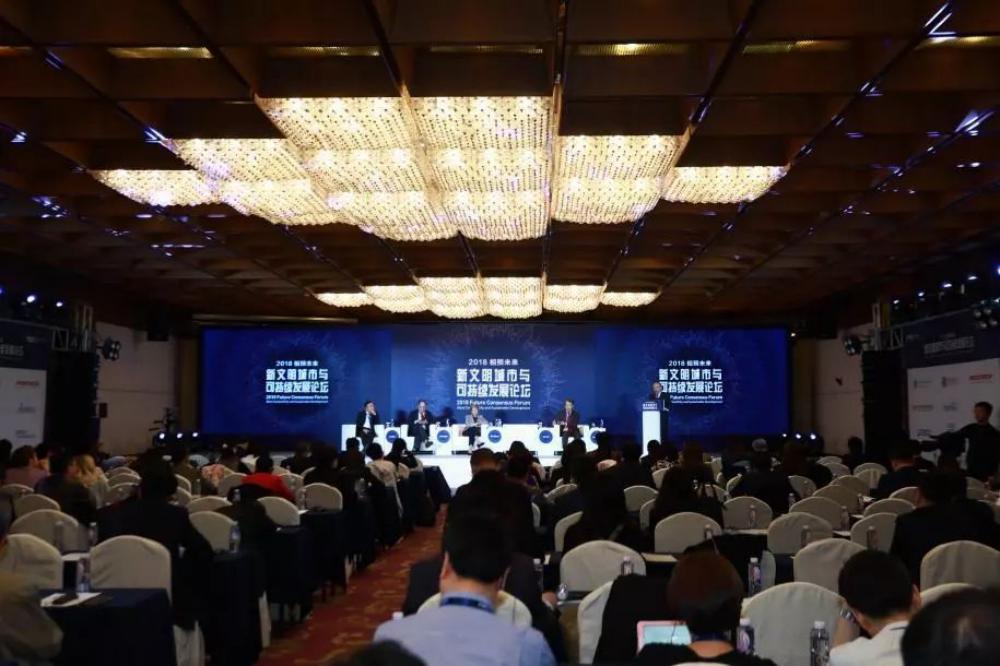
Scene of the “Special Dialogue”
In the afternoon of the 4th, one of the key sessions of the forum - “Special Dialogue: Sustainable Cities and Development - Policy Synergy”, Wu Hongbo, former Under-Secretary-General of the United Nations and Co-Director of the TUSDG, Kim Won-soo, former Under-Secretary-General of the United Nations and Director of the Ban Ki Moon Center for World Citizenship, Jean Todt, President of the FIA, Irina Bokova, former Director-General of the UNESCO, as well as Liu Song, Vice President of Aliyun, were present to have an in-depth discussion of the topic.
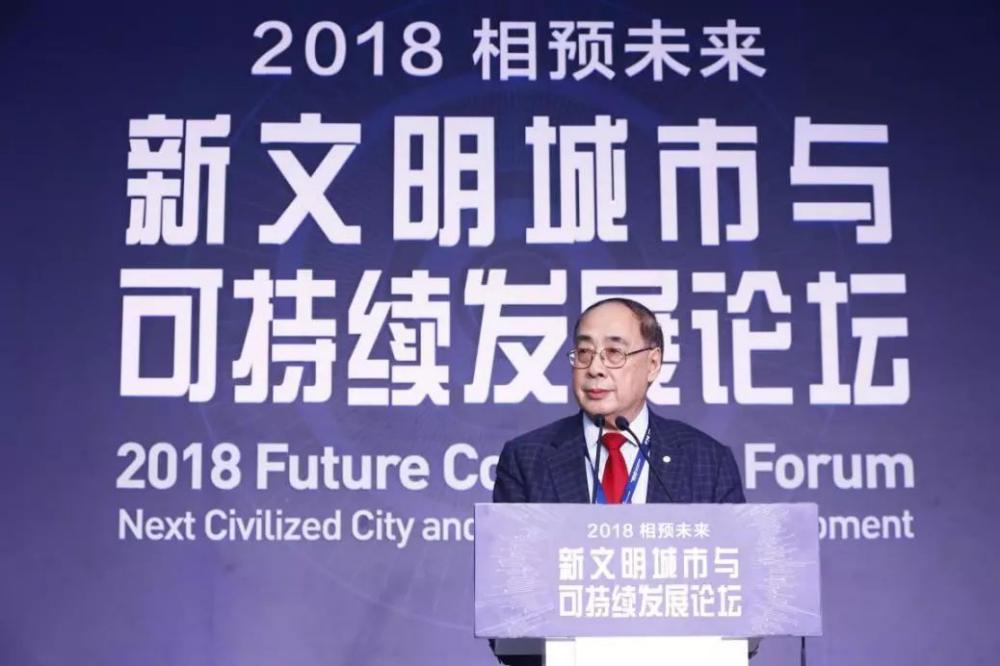
Wu Hongbo
Wu Hongbo talked about how realizing a sustainable city is a systematic project that requires policy coordination among various government departments, and shared the specific aspects involved in policy coordination from the perspectives of urban functionality and land use planning, rational design of urban space, lowering population density in urban areas, improving the quality of the population, improving the energy structure and the urban water circulation system, and perfecting the material regeneration system. It said that eco-city is a new model of sustainable development, the construction of which requires the coordination of resources, environment, economy, society and human development to achieve benign and sustainable development. The construction of eco-cities in China would not only address the needs of building a moderately prosperous society in China in a comprehensive manner, but would also provide lessons to be learned for sustainable urbanization in a wide range of Asian and African countries.
Parallel Forum
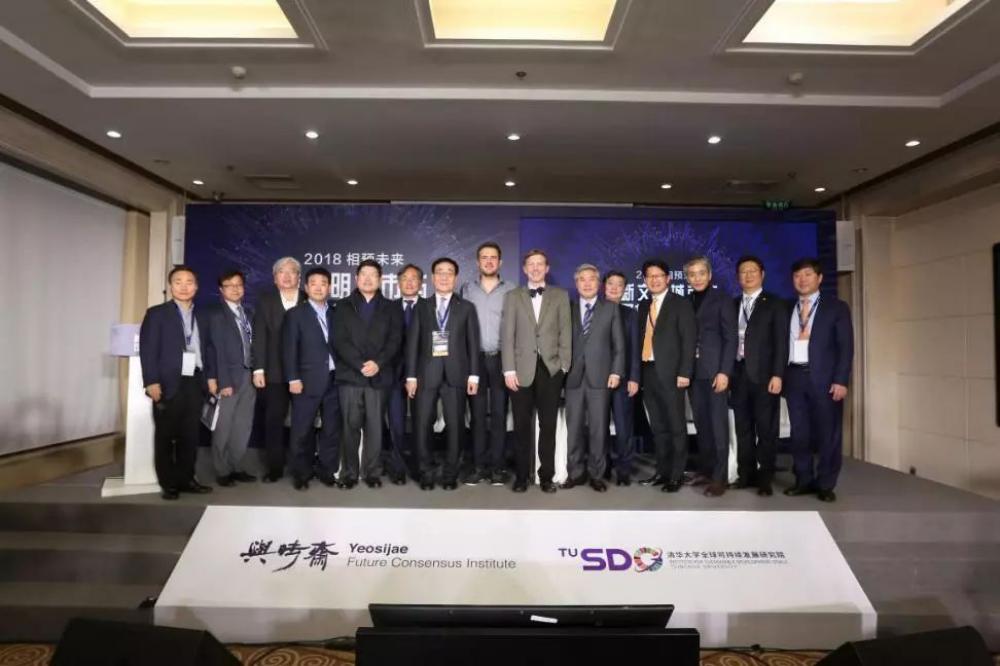
Group photo of the two groups of “parallel forum” guests
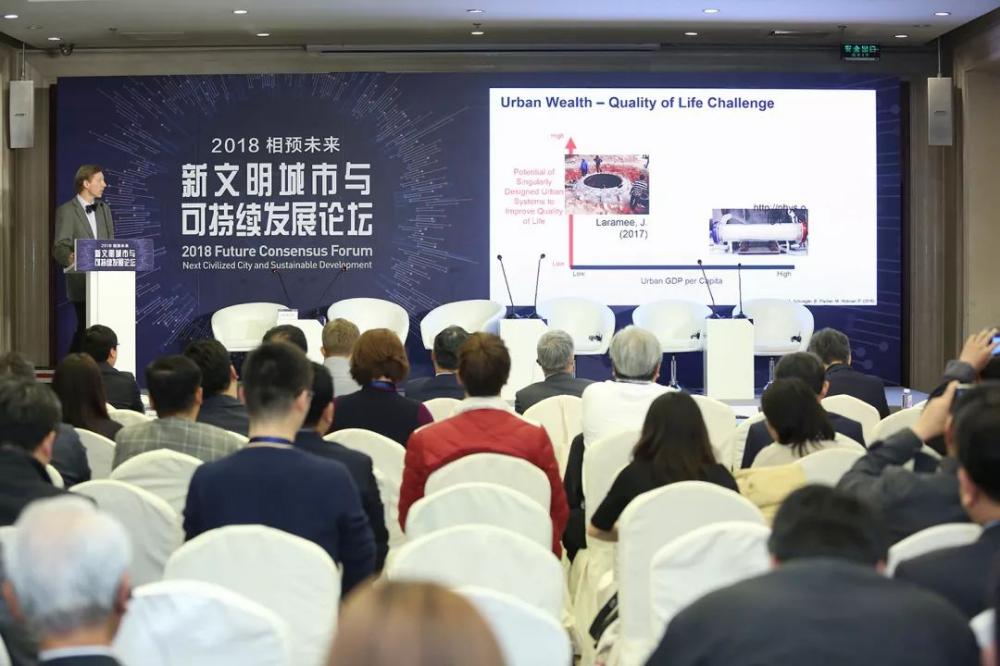
Parallel forum site
At the same time, two parallel forums held to analyze and discuss the impact of digital technology on life and cities with case studies of cities and enterprises. The panelists included Kim Kap-sung, Chairman of the Special Committee on Smart Cities for the Fourth Industrial Revolution under the President of the Republic of Korea; Michael Lepech, Associate Professor at Stanford University; Simon Lex, Assistant Professor at the University of Copenhagen; Kang Tae-Young, President of POSCO Research Institute; Lee Nyeon-ho, Professor of Political Science of Yonsei University; Kim Sung-Hwan, Dean of the Graduate School of Pohang University of Science and Technology; and Sebastien Aubrey, Vice President of Business Transformation Sales by Dassault Systemes, Felix Poza Pena, Chief Sustainability Officer of Inditex, and other business representatives attended and spoke in the parallel sessions.
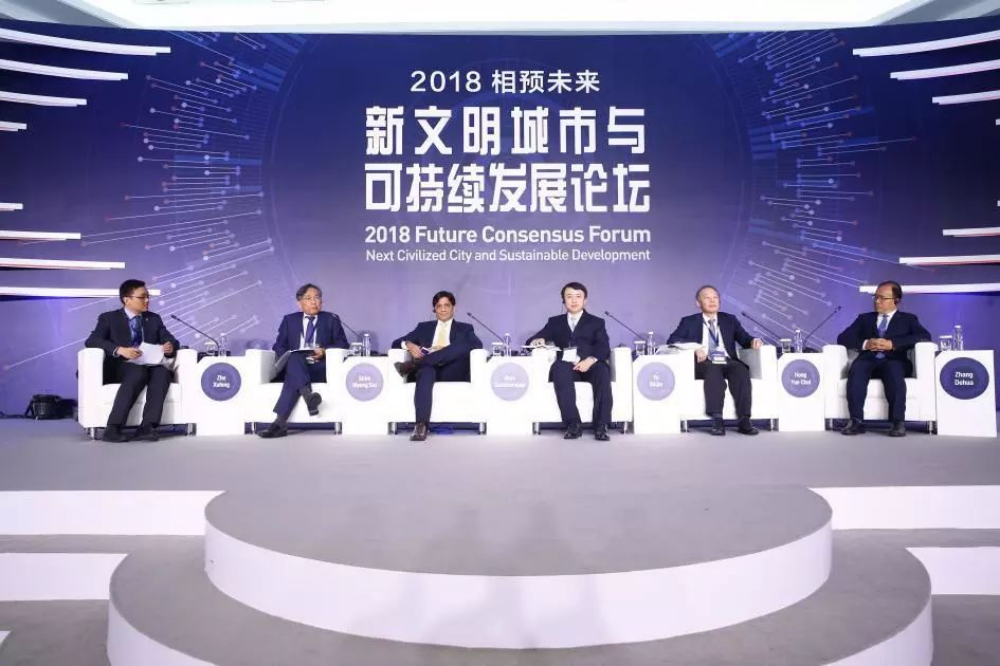
Group Photo of the Participants on the November 4th
The November 5th forum was held in the Lecture Hall, Main Budilding of Tsinghua University, with Zhu Xufeng, Associate Dean of SPPM and Executive Director of TUSDG, presiding over the opening ceremony.
Opening Ceremony
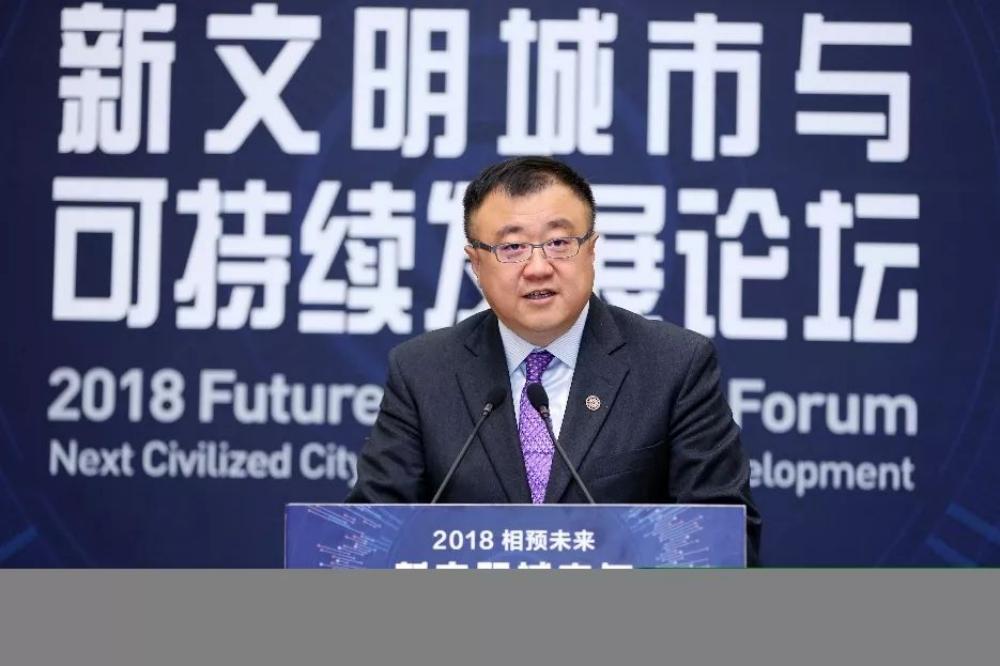
Yang Bin
Yang Bin, Vice President of Tsinghua University, delivered an opening speech. He pointed out that cities are not only the gathering place for human beings to live, work, educate and live, but also the epitome of the three major sustainable development challenges of the world, namely economic, social and environmental, and an important starting point for the implementation of the United Nations 2030 Agenda by all countries in the world in the future. It is hoped that through this forum, the link between “cities” and “sustainable development goals” will be deeply explored and strengthened, and effective measures to promote “sustainable urban development” will be sought, so that the outcomes of this topic will be gradually incorporated into the future urban planning of all countries, and each country will provide policy recommendations to decision makers about implementation the 2030 agenda.
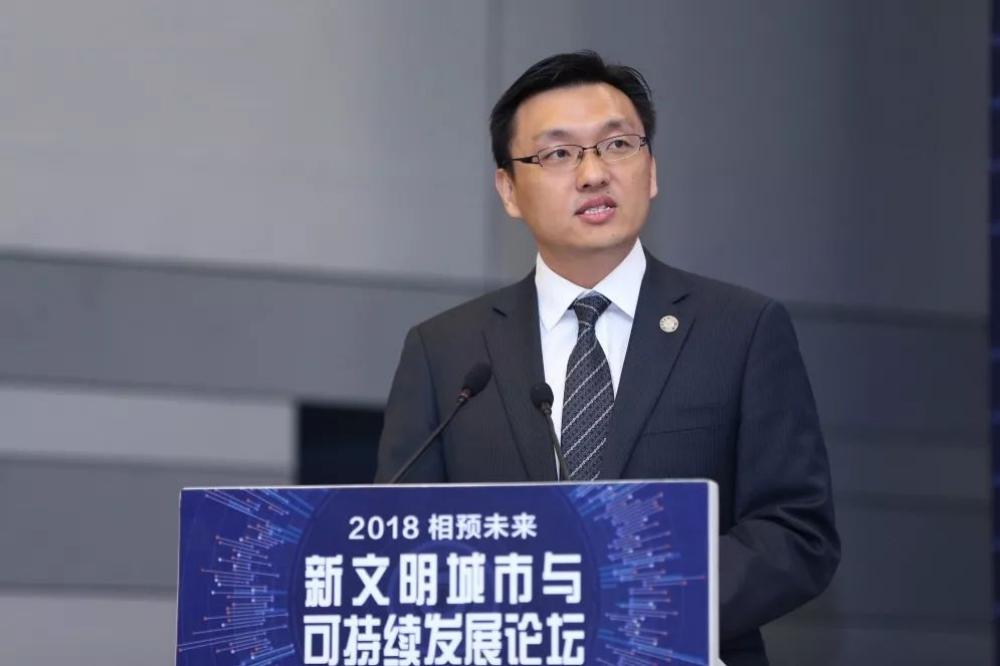
Zhu Xufeng
2018 Future-City Idea Competition Awards Ceremony
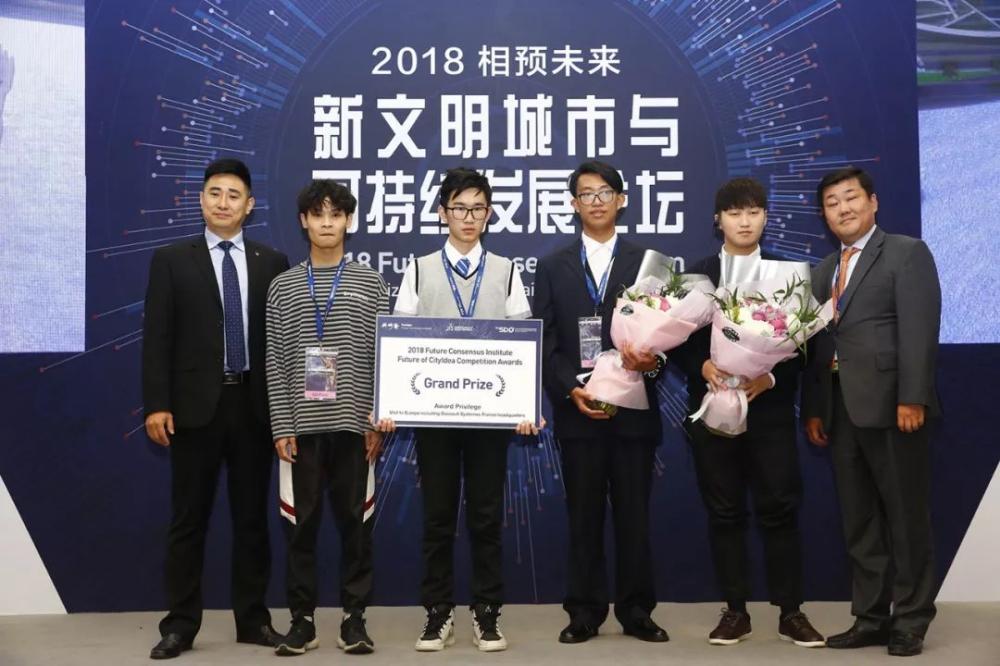
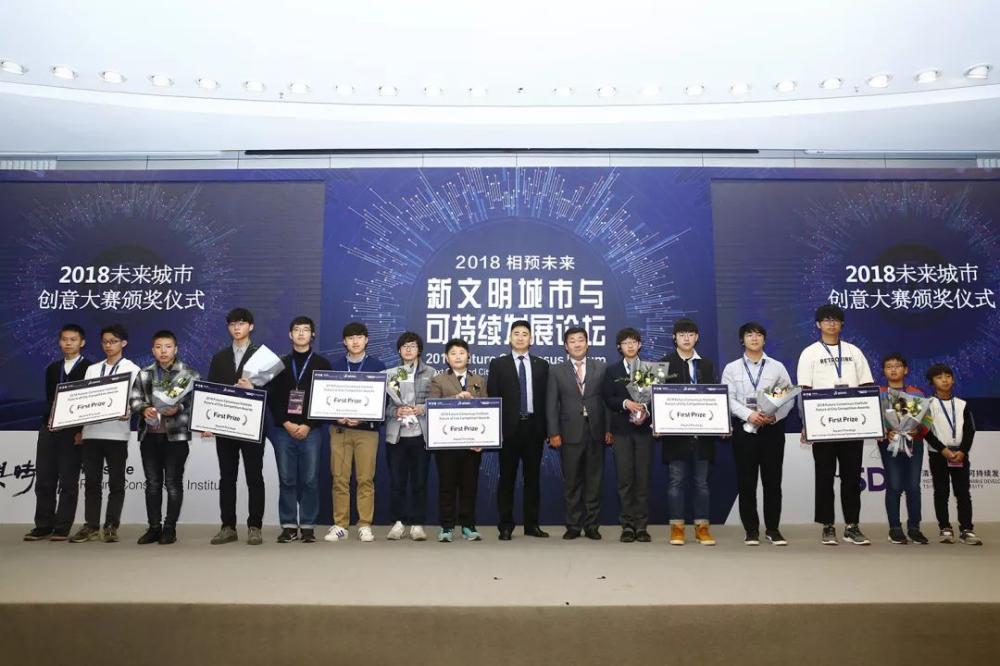
Group Picture of the Winning Teams
The blueprint for sustainable urban development not only needs to be drawn by city leaders and policy makers, but also needs to be defined and imagined by the youth of the new era. The “My World City Idea Contest”, co-hosted by Korea and Tokusai and TUSDG, had its award ceremony at the forum. The awards were presented to the winning teams from China and South Korea, encouraging more young people to focus on the sustainable development of cities in the future.
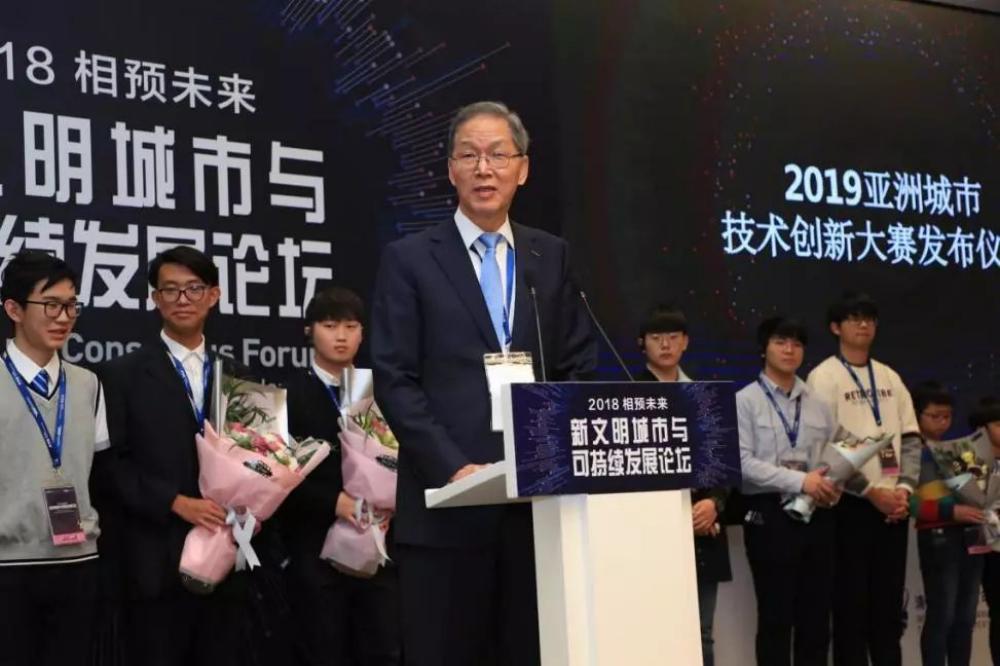
Kim Doh-Yeon
2018 Future City Idea Competition focuses on the novelty of urban creativity. The Future City Series Competition will be held in the near future as well. Kim Doh-Yeon announced the “2019 Asia Future City Technologies (AFCT) Competition”, which will provide technological support for sustainable research on future cities through technological tools and application services.
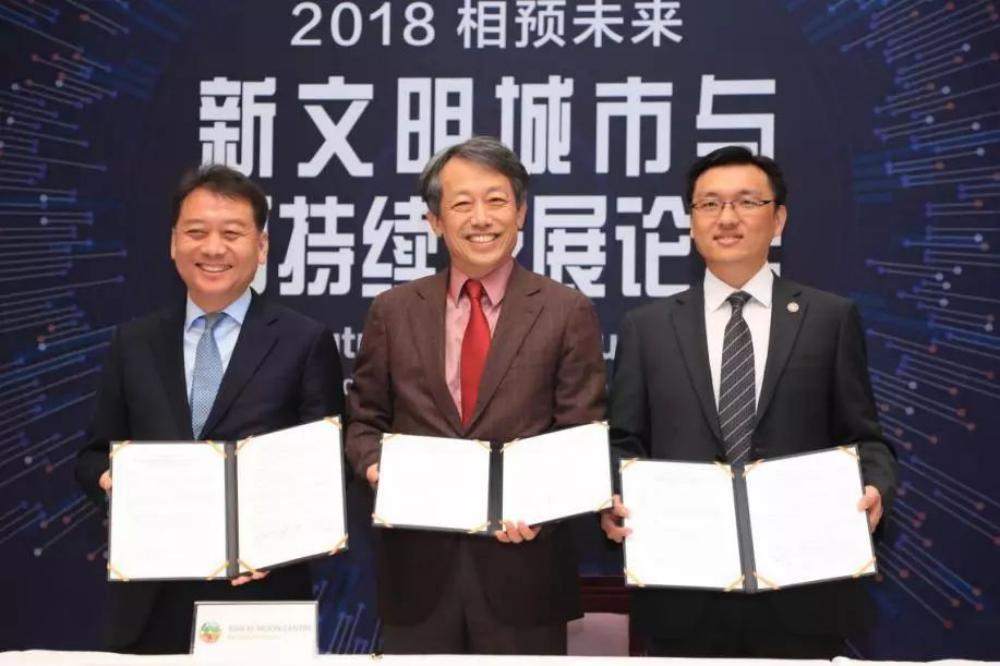
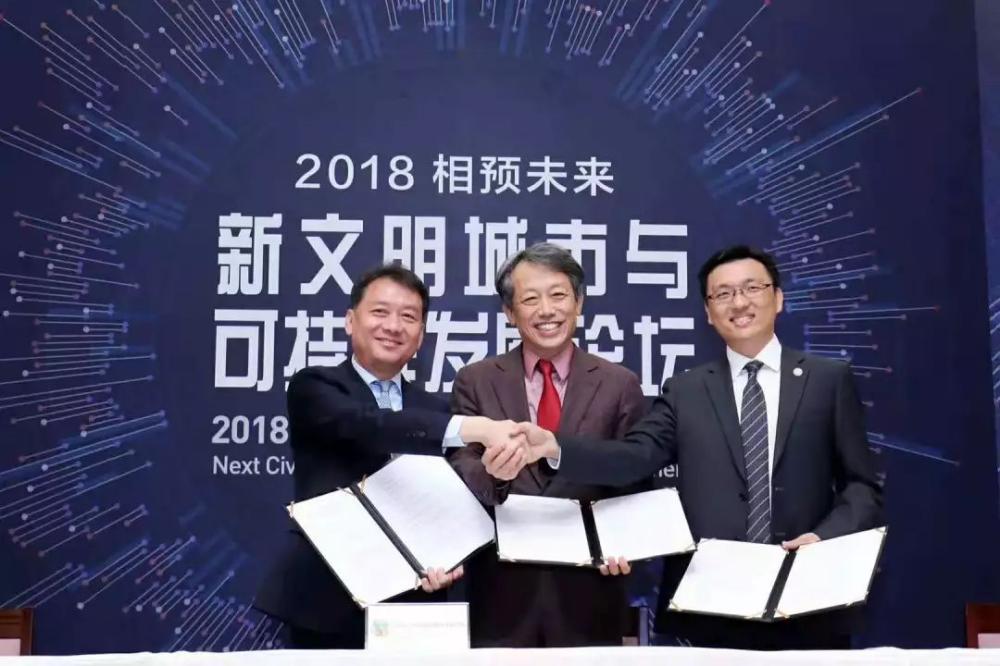
MoU Signing Ceremony: Lee Kwang-jae (left), Kim Won-Soo, (middle), and Zhu Xufeng (right)
In order to further promote the implementation of sustainable urban development, the Ban Ki-moon Center for World Citizenship, Korea and Tokusai Institute, and Tsinghua University School of Public Administration signed a MoU (Memorandum of Understanding). Former UN Under-Secretary-General and Director of the Ban Ki-moon Center for World Citizenship, Kim Won-soo, President of Yeosijae, Lee Kwang-jae, and Zhu Xufeng, Associate Dean of SPPM, signed the agreement on behalf of the three organizations, which lays an important cornerstone for the future development of urban sustainable development research, talent training, and academic exchanges.
“Meet SDGs” High-End Forum No.5: Dialogue with Ban Ki-moon
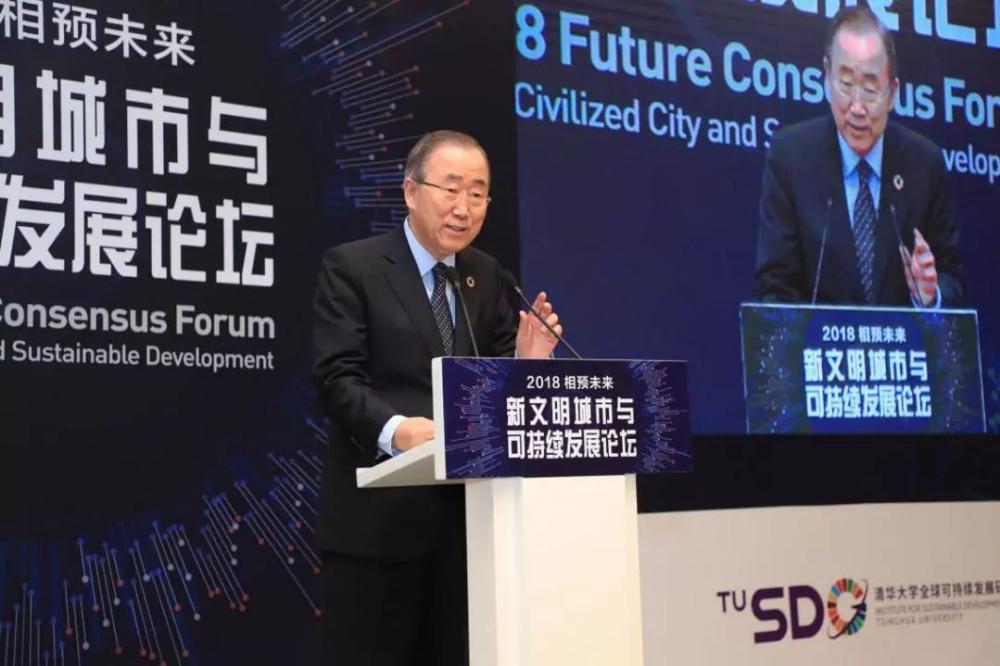
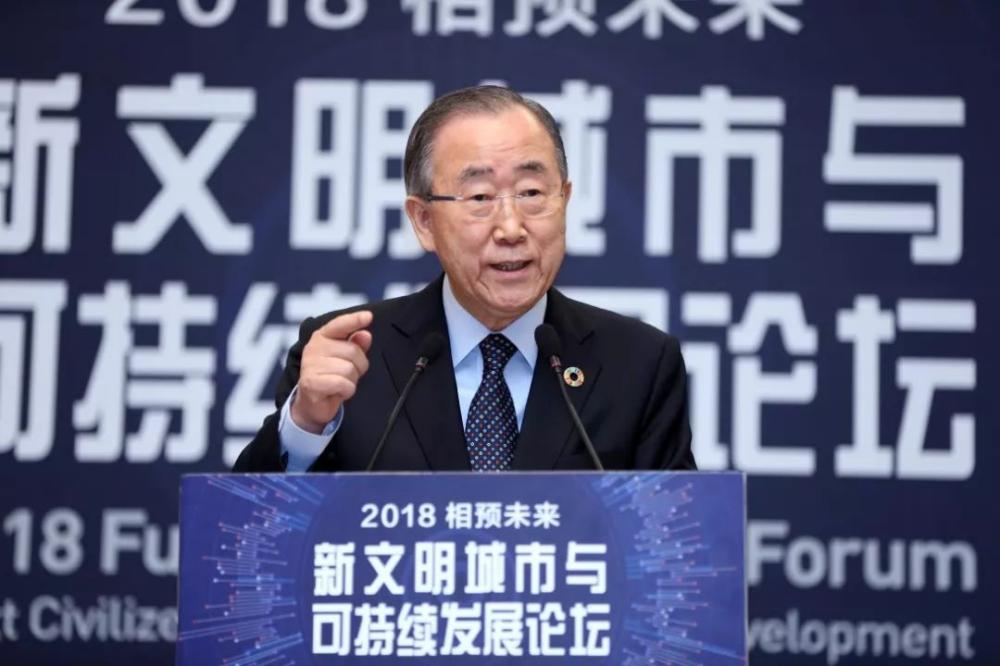
Ban Ki-moon
Then, the important part of the day - “‘Meet SDGs’ High-end Forum: Dialogue with Ban Ki-moon” - was moderated by Mr. Wu Hongbo, former Under-Secretary-General of the United Nations, Adjunct Professor of Tsinghua University, and Co-Director of the TUSDG.
Ban Ki-moon gave a wonderful speech to the Tsinghua students, sharing his journey from dreaming of becoming a Korean diplomat and national leader to becoming the 8th Secretary-General of the United Nations. He encouraged every Tsinghua student to have a dream, to dare to pursue their dreams, to broaden their horizons and enhance their global vision, and to actively face and solve the current challenges facing humanity. When it comes to the biggest challenge facing the world today - the crisis of unsustainability, during his tenure as Secretary-General of the United Nations, from the “Paris Agreement”, which led to the limitation of global temperature rise to 1.5 degrees, to the “United Nations 2030 Agenda for Sustainability”, which was the first time in the history of mankind that a global consensus was reached on the issue. Finally, he called on each student to cultivate a sense of “global citizenship” and a sense of mission and moral responsibility to build a sustainable future for humanity and the global ecosystem.
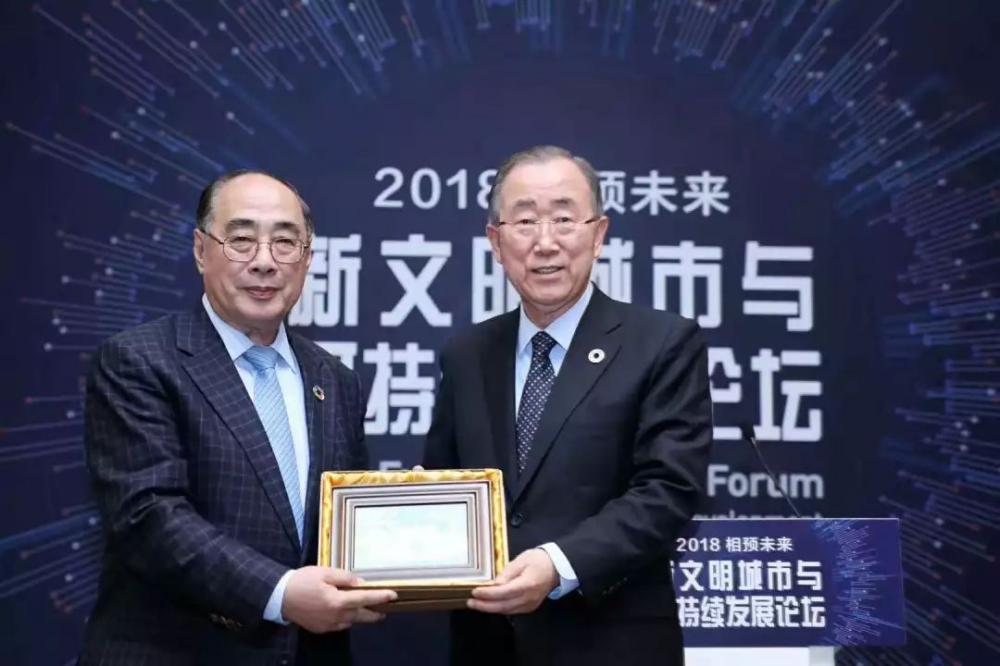
Wu Hongbo presented a gift on behalf of TUSDG to Ban Ki-moon
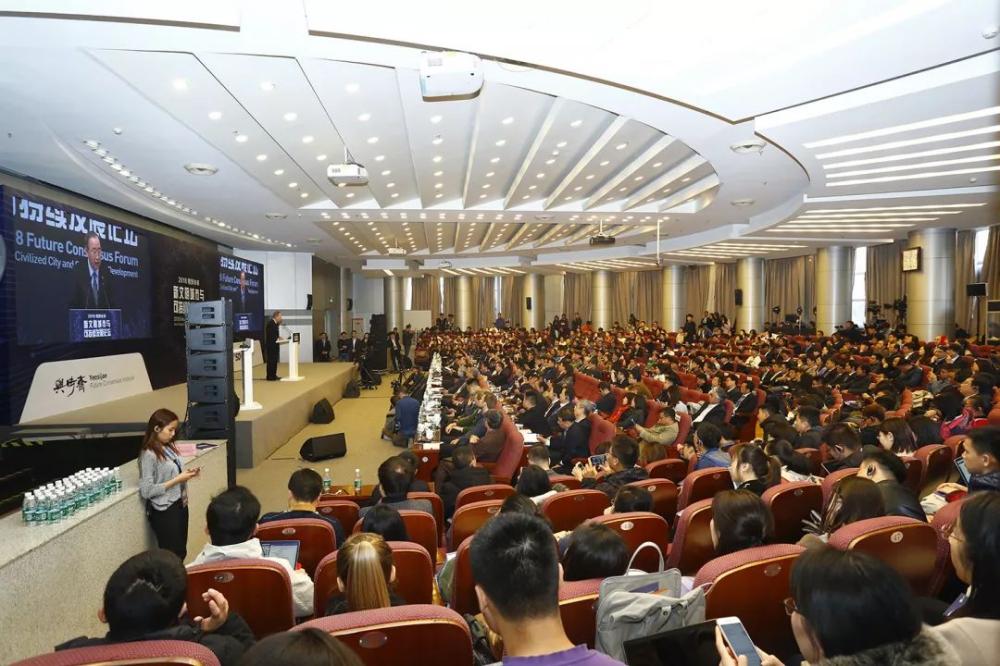
A Full Audience at the Scene
Closing Ceremony
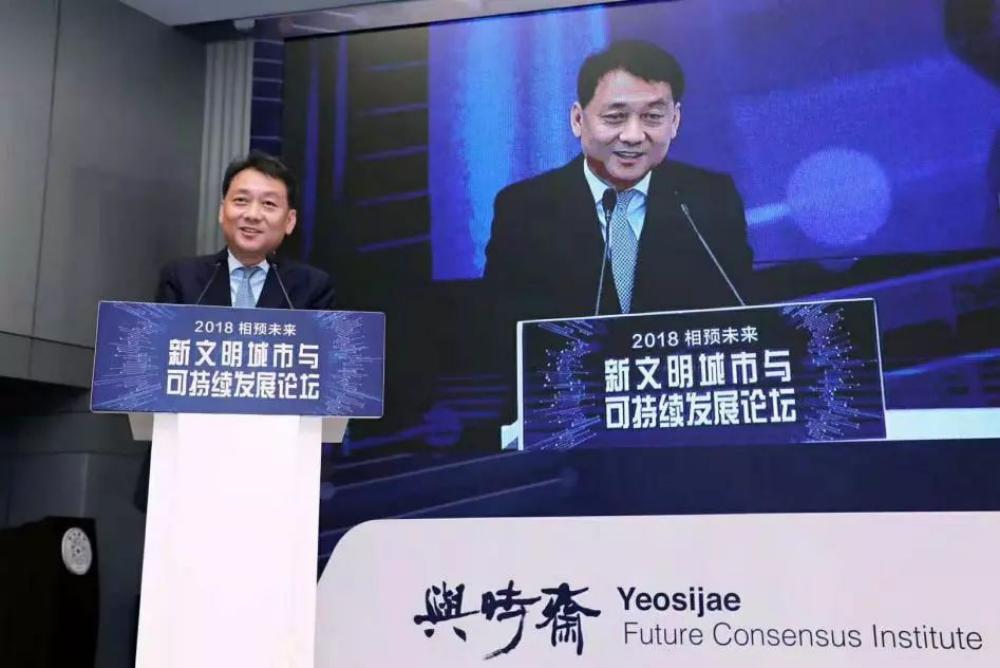
Lee Kwang-jae
Finally, Lee Kwang-jae, President of Yeosijae, delivered a closing speech, saying that the biggest challenge facing new urbanization is the “crisis of unsustainable development”, and that only by overcoming this crisis can we find a better way of life for human beings, which is to say that we should aim at creating new civilizational values. It was hoped that the Forum would set an example in addressing the issue of a community of human destiny.
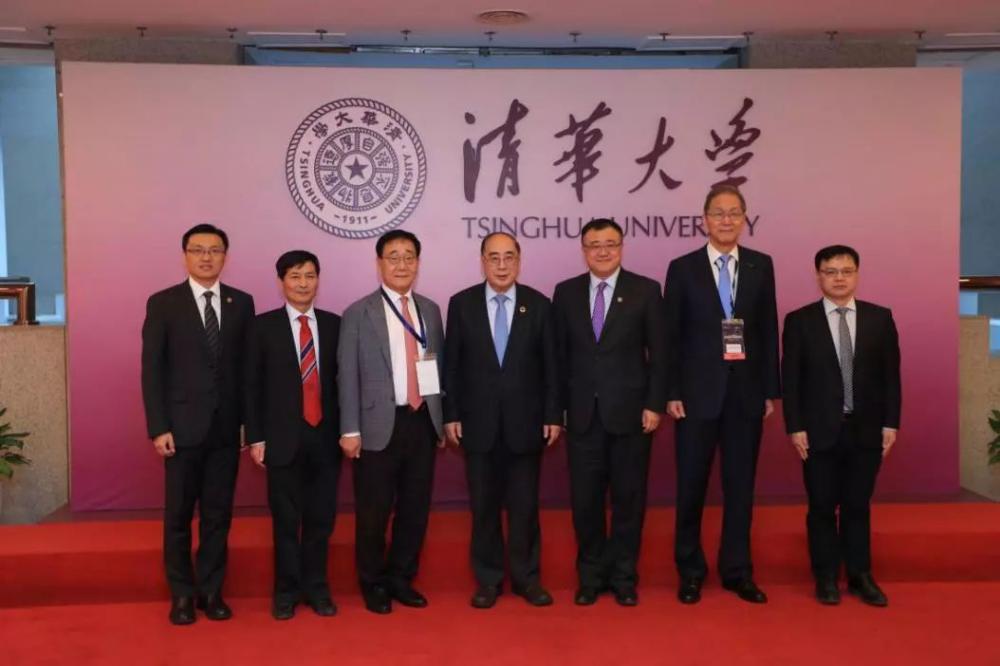
Before the forum on the 5th, Vice President & Provost of Tsinghua University Yang Bin met with President of Yonsei University Kim Yong-Hak, President of POSTECH Kim Doh-Yeon, and President of Yeosijae Future Consensus Institute Lee Kwang-Jae.
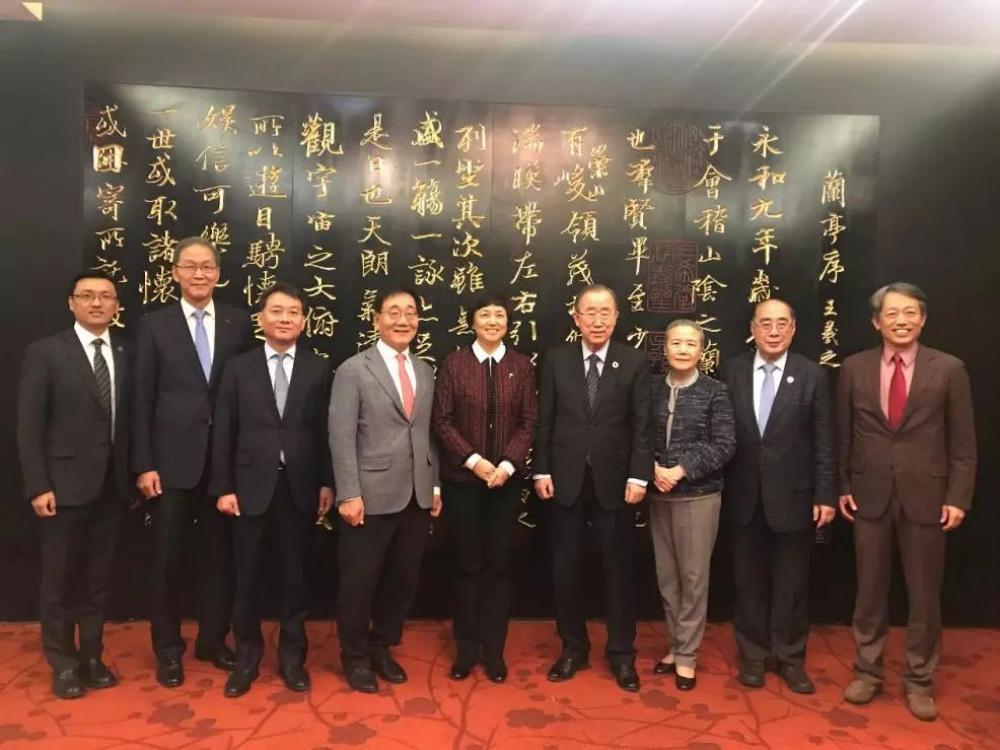
After the forum, Party Secretary of Tsinghua University Professor Chen Xu met with Former UN Secretary General Ban Ki-Moon and Mrs. Ban.

